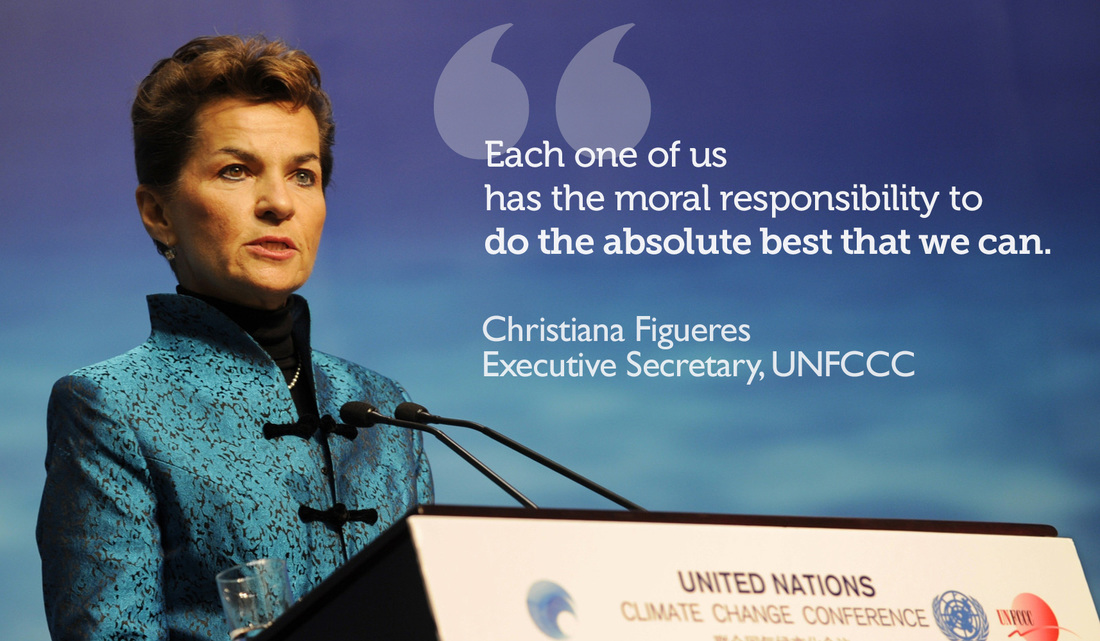|
In the United Nations Framework On Climate Change, written in 1992, the principle of “common but differentiated responsibilities” is introduced. In the context of the UNFCCC, this principle addresses the reality that though individual parties share a vision to mitigate climate change and stabilize greenhouse gas emissions, there are social and economic factors that influence each party’s ability to contribute to the effort. Historically, developed countries have emitted more greenhouse gases as technology, business, and infrastructure stabilized their economies. Developing countries, however, are still in the process of strengthening their economies and have fewer financial resources to devote to sustainable development in the coming years.
To gain a better understanding of the complex issues of common but differentiated responsibilities, I want to introduce the financial responsibilities of UNFCCC parties and some of the financial mechanisms in place to support the most vulnerable parties. The UNFCCC separates countries into three different groups based on commitments and responsibilities[i]:
A financial mechanism was developed by UNFCCC so that Annex II parties can assist developing countries in both the mitigation and adaptation of climate change. A portion of the financial mechanism was given to the Global Environmental Facility (GEF) and also to the Green Climate Fund (GCF)[ii]. GEF was established in 1992 and currently works with partners, such as the United Nations, to assist in solving the most challenging environmental problems[iii]. Currently, GEF has 4,407 projects and 16.22 billion dollars of grant funding[iv]. GCF was established by the United Nations at COP16 in 2010[v]. This global initiative seeks to support developing and highly vulnerable countries limit or reduce greenhouse gas emissions and has raised over 10 billion dollars[vi]. Though a financial mechanism is in place, the complexities of financial responsibility at UNFCCC raise many questions: Should developed countries, who have contributed to the majority of human-induced climate change, be responsible for paying for future development in developing countries? How do we account for historical emissions before there were records from individual countries? Should developing countries be expected to have the same emission rate reductions as developed countries when they make lack the technology, infrastructure, and financial means to make sustainable development possible? Ultimately, questions of justice and equity play a major role in determining financial responsibility at UNFCCC. Though there may not be immediate answers, it is critical that we continue bringing these questions to the forefront of the decision-making process. Highly vulnerable countries should not be alone in the effort to mitigate and adapt to climate change. We share a common goal, and together we have the potential to use our differences to find the best environmental solutions. Sources: [i] http://unfccc.int/parties_and_observers/items/2704.php [ii] http://unfccc.int/cooperation_and_support/financial_mechanism/items/2807.php [iii] http://www.thegef.org/about-us [iv] http://www.thegef.org/about-us [v] http://www.greenclimate.fund/the-fund/the-big-picture#history [vi] http://www.greenclimate.fund/the-fund/behind-the-fund Image:https://www.climatecouncil.org.au/10-people-who-care-about-climate-change-more-than-your-average-politician
0 Comments
Leave a Reply. |
Categories
All
Archives
March 2024
|

 RSS Feed
RSS Feed
